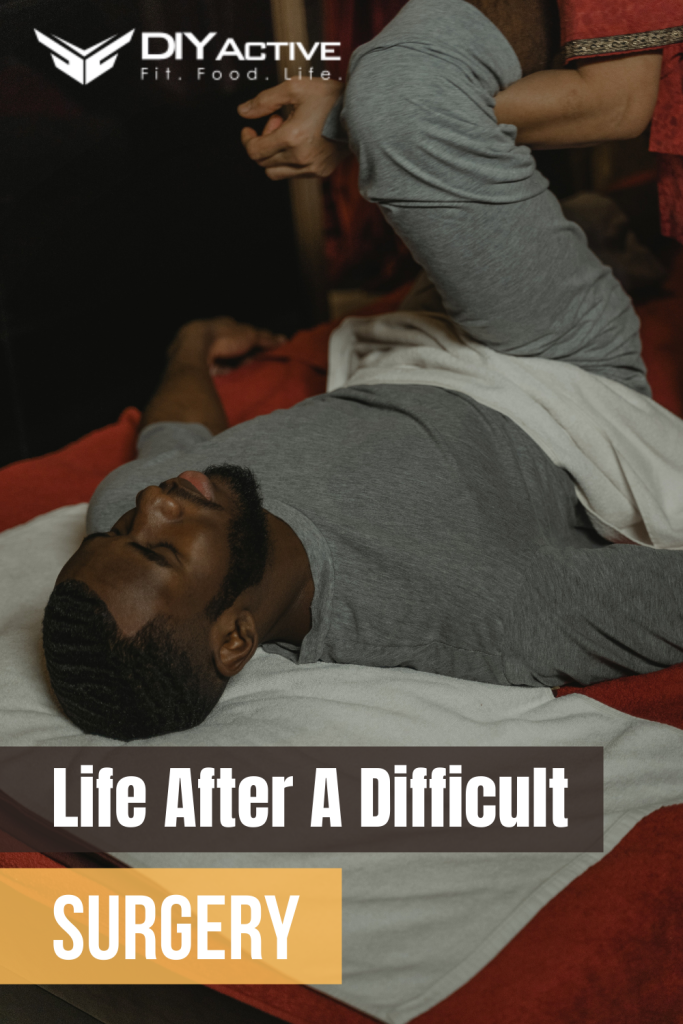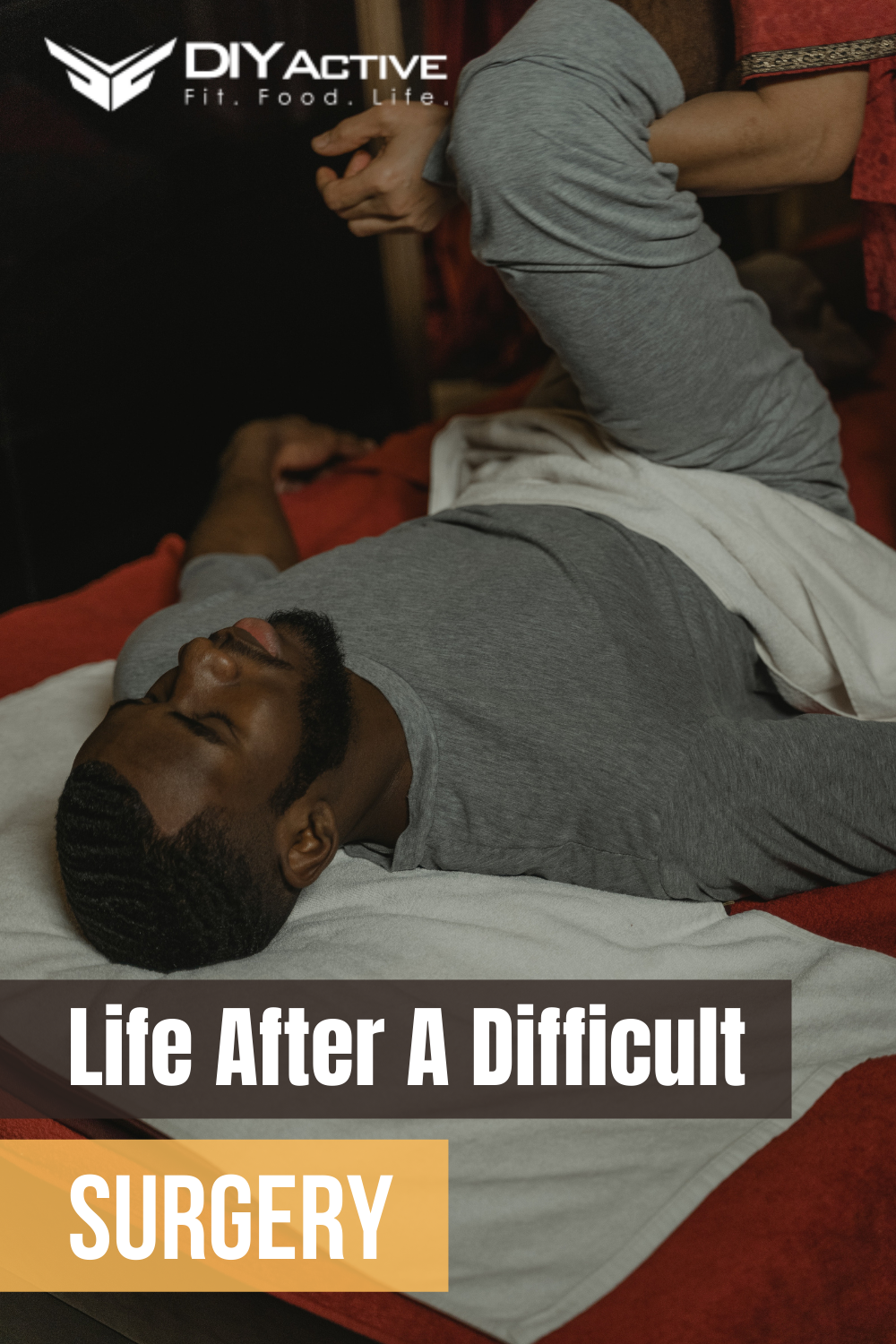
Ways To Get Your Life Back On Track After A Difficult Surgery
Postoperative recovery is a process that leads to the patient regaining control of their physical, psychological, and social functions aiming to return to their pre-operative state. The patient needs to be able to perform their daily life activities which significantly contributes to their overall psychological well-being.
Ways To Get Your Life Back On Track
Surgery is a traumatic experience for the body. Healing after surgery usually requires plenty of time and it’s essential to follow your surgeons’ instructions about medications, physical movements, or weight restrictions.
In general, the best healing methods after a difficult surgery involve a combination of carefully controlled physical movement with plenty of rest. Having a healthy diet that contains a little extra protein is also another great way to promote healing and to recover energy after surgery.
In this post, we look closer at helpful tips on dealing with life after having a difficult surgery and getting your life to normal.
Follow Post-Surgery Recovery Plan and Instructions
Following your post-surgery recovery plan and doctor’s instructions might seem obvious but most healthcare providers will tell you that the majority of patients tend to disregard the instructions they’ve been given, especially those that seem unimportant. This is a big mistake as there’s always a strong reason for a given instruction.
So when told not to take a bath, do certain activities, lift heavy objects for the first couple of weeks after surgery, or follow a specific diet, you must obey your doctor’s orders rather than countermand them.
 By following your post-surgery recovery plan, not only can you avoid unexpected complications but you can make your home recovery go a lot smoother and help get back to your normal life sooner.
By following your post-surgery recovery plan, not only can you avoid unexpected complications but you can make your home recovery go a lot smoother and help get back to your normal life sooner.
Get Some Good Night’s Rest
After a difficult surgery, some patients have trouble sleeping which is not uncommon and usually occurs at mid-recovery as the doctor decreases the pain medications and patients start being more active during the day.
One of the reasons why the quality of sleep is affected after surgery is because of the discomfort of not achieving the favorite sleep positions and because of accumulated pain and stress in the body. To flip back into a normal sleep cycle and stop tossing and turning, there are certain remedies you can try to feel calmer and ready for bedtime.
A good relaxing bath will help your body unwind and create the right conditions for a good night’s rest. Do some light exercises if you’re allowed to or meditation to release anxiety.
A simple but very effective remedy to lull you to sleep is to use essential oils for sleep which can be deeply meditative, contemplative and slow your breathing and soothe your mind. Listen to soothing music or natural sounds which can also calm your nerves and help you fall asleep.
Say A Prayer for Speedy Recovery
Preparing yourself or a loved one for surgery can be scary, but the road to recovery can be even more stressful and patients can end up going home and feeling depressed, scared, and anxious about the future and their health.
During such difficult times, prayers for recovery can help patients put their faith in God’s hands and find hope and peace as they begin their healing process.
Prayer is a special form of meditation and patients can take inspiration from a saint of the day to channel positive energy, step away from distractions, and instead focus on deep breathing and practicing mindfulness. This has been shown to have healing powers and strengthen the connection with the mind and body.
Keep Your Follow-Up Appointments
Just as it’s important to follow post-op recovery plans, patients must also keep all of their follow-up appointments. Even if a wound is healing well and you’re feeling excellent, don’t treat a follow-up appointment like an unnecessary expense and waste of your precious time.
Your incisions might be healing well, but a doctor uses these appointments to look for additional things you may not even be aware of, such as signs of infections and the need of adjusting medication doses.
Never skip follow-up appointments as your surgeon might also want to monitor and manage any long-term side effects and they might request additional physical examinations, blood tests, x-rays, or scans to ensure everything is okay. This is also an opportunity for patients to ask questions, share their feelings or mention concerns they may have.
Drink and Eat Properly
Many patients might lose their appetite after having surgery because of nausea, constipation, or simply because they lack an appetite. However, eating nourishing foods and staying hydrated after surgery can promote healing, keep up strength, help the wounds heal, and minimize common complications.
To fight off infections and increase your energy levels after a difficult surgery, make sure to eat lots of fruits and vegetables that are loaded with vitamins, minerals, fiber, healthy fats, and adequate amounts of protein and carbohydrates which help battle fatigue and strengthen the immune system.
Wrap-Up
Following your surgeon’s post-op instruction, getting rest, and attending your follow-up medical appointments are vital if you want your body and health to bounce back.
While recovering from surgery takes time and patience, you can surround yourself with friends but also practice meditation and prayers that can help you make the transition as seamless as possible and return to normal life fully recovered.
Photo by RODNAE Productions from Pexels
Photo by Tima Miroshnichenko from Pexels



